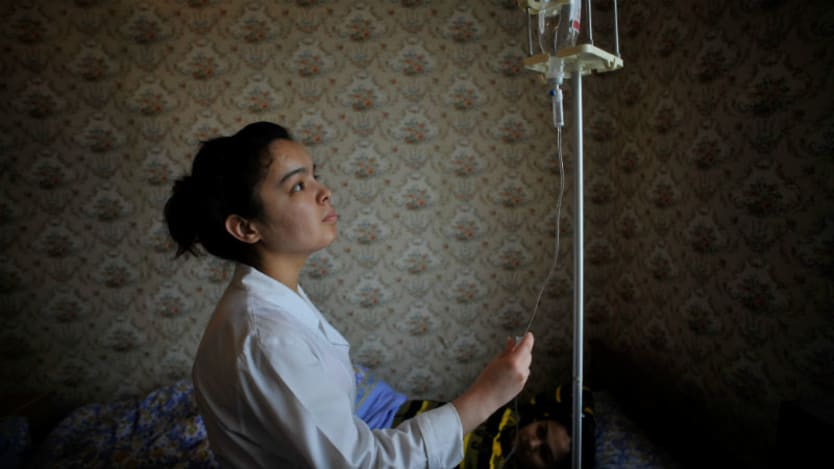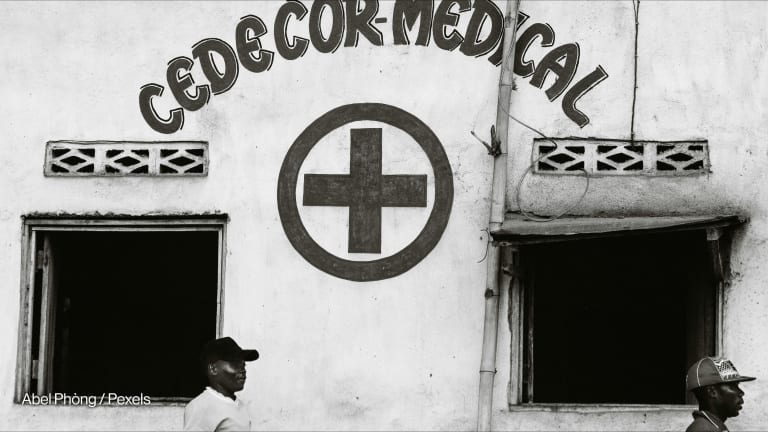
In a little more than a month’s time the world will mark the first anniversary of the adoption of the Sustainable Development Goals — the first-ever global to-do list for a fairer, safer and healthier world by 2030.
Much has been written about the expanded scope of the goals relative to the Millennium Development Goals, and the complex links that bind them all together. Among the health-related targets, some represent the unfinished business of the MDG era, and some are new targets that reflect changing disease patterns and the challenge of aging populations.
But none are more significant than target 3.8: achieving universal health coverage. The UHC target is the linchpin of the health-related SDGs; the one target that, if achieved, will help to deliver all the others by providing both population and person-centered high-quality services that are free at the point of delivery and designed to meet the realities of different people’s lives.
Of course, UHC is not a new concept, but its inclusion in the SDG agenda is a significant acknowledgment by the nations of the world that progressing toward UHC will not only improve the health of millions, but will also contribute to reaching many of the other SDGs. Over the past five years or so, more than 70 countries have asked the World Health Organization to help them progress toward UHC.
Moving toward UHC
One important step is to agree on how to measure it. Two indicators have been selected for UHC: one that measures the level of coverage in a population by tracking access to a set of eight core health services, and another that measures the extent to which people are exposed to financial hardship through out-of-pocket expenditure on those services.
Both are important because they capture the twin imperatives of UHC: that people and populations receive the health services they need, without facing financial hardship. WHO estimates that about 150 million people around the world suffer financial catastrophe annually from out-of-pocket expenditure on health services, while 100 million people are pushed below the poverty line.
There is no one-size-fits-all approach to achieving UHC. There are, however, several common unavoidable truths that we must all face. Aging populations and the burgeoning burden of noncommunicable diseases present unique challenges that will require all countries to find innovative ways to reshape their health systems.
“Recently-approved drugs for cancer and hepatitis C hold enormous promise, but come with eye-watering price tags that put them out of reach for most of the people who need them.”
— Marie-Paule Kieny, assistant director-general for health systems and innovation at the World Health OrganizationOne of the first requirements will be a radical transformation of the health workforce. The global economy is projected to create demand for 40 million new health workers by 2030, but most of those jobs will be created in the wealthiest countries. Low and lower-middle income countries need 18 million more health workers if they are to achieve UHC. Without urgent action, that mismatch will widen.
A view to future investment
The High-Level Commission on Health Employment and Economic Growth, chaired by President François Hollande of France and President Jacob Zuma of South Africa, will next month deliver a set of recommendations on how to address this challenge. Among them will be a call for countries to see their health workers as an investment, instead of a cost. Investments in the education, training, work conditions, financing and deployment of health workers will pay handsome dividends, not only for the health of populations, but for economies, health security and gender equity.
A second major challenge is the ever-increasing price of medicines. Recently-approved drugs for cancer and hepatitis C hold enormous promise, but come with eye-watering price tags that put them out of reach for most of the people who need them.
A study published in PLOS Medicine at the end of May found that, after adjusting for average 2015 exchange rates and purchasing power, the cost of treating the entire hepatitis C-infected population in each of 30 countries would range from 10.5 percent of total pharmaceutical expenditure in the Netherlands to 190.5 percent in Poland. In 12 countries, the price of a 12-week course of sofosbuvir (the medicine concerned) was equivalent to one year or more of the average annual wage, ranging from 0.2 in Egypt to 5.3 in Turkey.
Last year, WHO included several new treatments for cancer and hepatitis C on its “essential medicines list,” a statement that innovative technologies with the potential to cure or significantly alter the course of deadly diseases are not luxury items for the privileged few; they are public goods to which access must be equitable.
The difficulty lies in assessing what represents a fair profit margin for pharmaceutical companies, especially when returns for shareholders are prioritised over access to lifesaving medicines. That assessment is hindered by the lack of transparency around exactly how the prices of medicines are set. Research and development investments are clearly needed, but their real cost is unclear. Information on the patent status of essential medicines is also not easy to obtain, making it difficult for countries to assess whether they can procure generic medicines or produce them locally.
To that end, WHO is planning to convene governments, patient groups and industry stakeholders to discuss principles for a fair pricing model that can affordably deliver the medicines needed by patients while keeping companies interested in developing new and better treatments and producing generic treatments. This may require reconsideration of the need for transparency, full understanding of what it costs to develop a new product, as well as understanding the minimum profit needed to keep production going.
Achieving UHC, like all of the SDGs, is a challenge for all countries, rich and poor. All nations will have to take steps to reform their health workforce and address the affordability of medicines. No one can afford a business-as-usual approach. Nor does anyone pretend that UHC can or will be achieved with a snap of the fingers. The challenges are serious, although not insurmountable. But if the world leaders who signed up to the SDGs are to deliver on their promises, they must be prepared to take bold action to deliver on UHC.
Access to Medicines is an online conversation to explore work being done to guarantee access to lifesaving medicines, where solutions are still needed. Join us as we look toward the future, tagging #access2meds and @Devex to share your thoughts.








